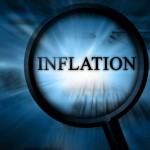Posts Tagged ‘Inflation’

For the last two or three decades, the principal target of economy has been the control of inflation (Delong, 2002). Both politicians and economists say that this is the first economic duty of any government. And they tend to assume that other economic goals such as economic growth and low unemployment will be achieved only if the inflation is held under control. According to Frank and Bernanke (2001), as economic growth and low unemployment is achieved through successful controlling of inflation, then there is a relationship between inflation and economic growth. There were many researches and investigations to identify and analyse the relationship between inflation and economic growth which were carried out by Barro (1995) Li (2000), Gokal and Hanif (2004), and they all identified the relationship between two variables. They all tend to conclude that a consistent economic growth can be achieved with low consistent inflation rates; however, higher inflation rates distort the economic growth consistency of any country. Like many other developing and emerging groups, CIS countries also aim to achieve low sustainable inflation together with high economic growth which is of great importance for any country. Malik, (2005), indicates that one of the determinants of macro-economic stability is inflation, and long term economic growth requires macroeconomic stability which will be achieved through low inflation along with sustainable budget deficits, realistic exchange rates and appropriate real interest rates. He points out that the stability of inflation rates has an enormous impact on the economic growth of the country. Khan and Senhadji (2001) state that first researchers to study and detect the nonlinear inflation and economic growth relationship were Fischer (1993). Later, Sarel (1996) examined the data of 87 countries and covered the period of 1970-1990. He actually found structural break point of the relationship between inflation and economic…
